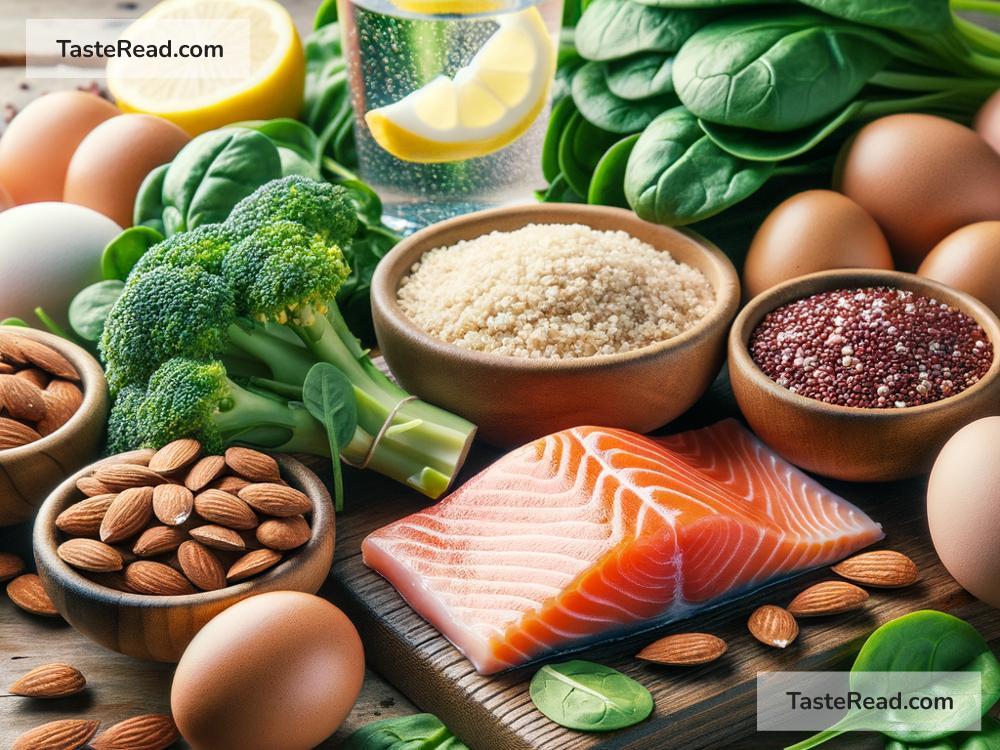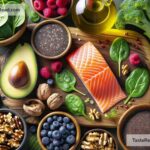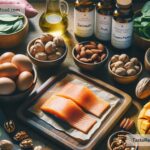Boost Your Intercostal Muscle Strength with the Right Foods
When it comes to building strength, we often think of lifting weights or doing push-ups. But did you know that the foods you eat can play a big role in strengthening your muscles? Today, we’re going to talk about foods that promote strength in a very specific muscle group: your intercostal muscles. These are the muscles between your ribs that help you breathe. Keeping these muscles strong and healthy is important for your overall well-being—especially for activities like running, swimming, or even singing.
Here’s a simple breakdown of the best foods for strengthening your intercostal muscles, and why they matter.
What Do Intercostal Muscles Do?
Before diving into food, let’s quickly explore what intercostal muscles are. They’re the muscles located between your ribs. These muscles help expand and contract your chest when you breathe. So, every inhale and exhale you take depends on them!
If your intercostal muscles are weak, you may find activities like exercising or even climbing stairs harder than they should be. Building strength in this region ensures better breathing, stamina, and overall lung capacity.
How Food Supports Muscle Strength
Muscles, including the intercostal ones, need nutrients to grow and stay strong. The right combination of protein, vitamins, minerals, and healthy fats can help repair muscle tissue and improve recovery after exercise. Certain foods also promote good blood circulation and reduce inflammation, further supporting muscle health.
So, let’s explore some foods that help strengthen your intercostal muscles and keep your breathing running like clockwork.
1. High-Protein Foods
Protein is the building block of muscle. Your body uses protein to repair and grow muscle tissue after exercise or daily activities. Without enough protein, it’s harder to develop strong intercostal muscles.
- Eggs: Packed with high-quality protein, eggs are an affordable option for muscle strength. They also contain vitamin D, which supports bone health around the rib cage.
- Chicken and Turkey: Lean sources of protein like poultry are essential for muscle recovery.
- Fish: Salmon, tuna, or sardines provide protein and omega-3 fatty acids, which reduce inflammation and encourage muscle repair.
- Beans and Lentils: If you’re vegetarian or vegan, beans are a fantastic source of plant-based protein.
Eating protein-rich foods regularly helps your intercostal muscles stay robust and flexible.
2. Leafy Greens
Leafy greens like spinach, kale, and Swiss chard are rich in magnesium. Why is magnesium important? Because it helps relax and contract your muscles, including your intercostal muscles. Without enough magnesium, your muscles may cramp or tire more easily.
These greens also contain antioxidants, which fight off damage caused by oxidative stress (a process that can weaken muscles over time). Whether you toss them in a smoothie or sauté them with garlic, leafy greens are a nutritional powerhouse.
3. Foods Rich in Omega-3 Fatty Acids
Omega-3 fatty acids are healthy fats that boost circulation and reduce inflammation. This makes them excellent for muscle recovery, especially after activities that challenge your breathing, like exercise or singing.
- Fatty Fish (such as salmon and mackerel)
- Chia Seeds and Flaxseeds
- Walnuts
These foods support the health of your intercostal muscles and improve overall respiratory function.
4. Foods High in Vitamin C
Vitamin C is essential for forming collagen, which strengthens muscles and connective tissues. Foods rich in vitamin C also support blood vessels and improve oxygen delivery to your muscles.
Some excellent sources of vitamin C include:
– Oranges
– Strawberries
– Bell Peppers
– Broccoli
Eating enough vitamin C can help your intercostal muscles work efficiently—especially during intense physical activity.
5. Whole Grains
Your muscles rely on energy to function properly, and carbohydrates found in whole grains provide that energy. Foods like oats, quinoa, and brown rice are slow-digesting carbs that ensure a steady supply of fuel for your intercostal muscles.
Whole grains also contain B vitamins that help support energy metabolism and reduce muscle fatigue.
6. Dairy Products
Calcium is essential for muscle contraction, and dairy products like milk, yogurt, and cheese are rich in calcium. These foods also contain protein, making them doubly useful for building intercostal strength.
If you’re lactose intolerant, opt for calcium-enriched plant-based alternatives like almond milk or oat milk.
7. Nuts and Seeds
Nuts and seeds offer a mix of protein, healthy fats, and minerals like magnesium and potassium. These support both muscle strength and recovery. Think almonds, sunflower seeds, or pumpkin seeds.
Snack on a handful of nuts or sprinkle seeds on your salads to keep your intercostal muscles in good shape!
Hydration Matters
While we’re talking about food, let’s not forget water. Staying hydrated ensures your muscles—including your intercostal ones—function optimally. Proper hydration prevents cramping and supports better muscle recovery.
Conclusion
Your intercostal muscles are small but mighty—they work tirelessly to help you breathe every second of the day. By eating the right foods, you can improve their strength and flexibility, keeping your breathing and overall health in top form.
Make sure to include high-protein foods, leafy greens, omega-3-rich options, and enough calcium in your diet. Pair these with whole grains for energy and plenty of water to stay hydrated.
Remember, good nutrition is just one part of the equation for strong muscles. Combine it with regular exercises like yoga, deep-breathing exercises, or swimming for the best results. Your intercostal muscles will thank you—and so will your lungs!
Stay healthy, and breathe easy!


